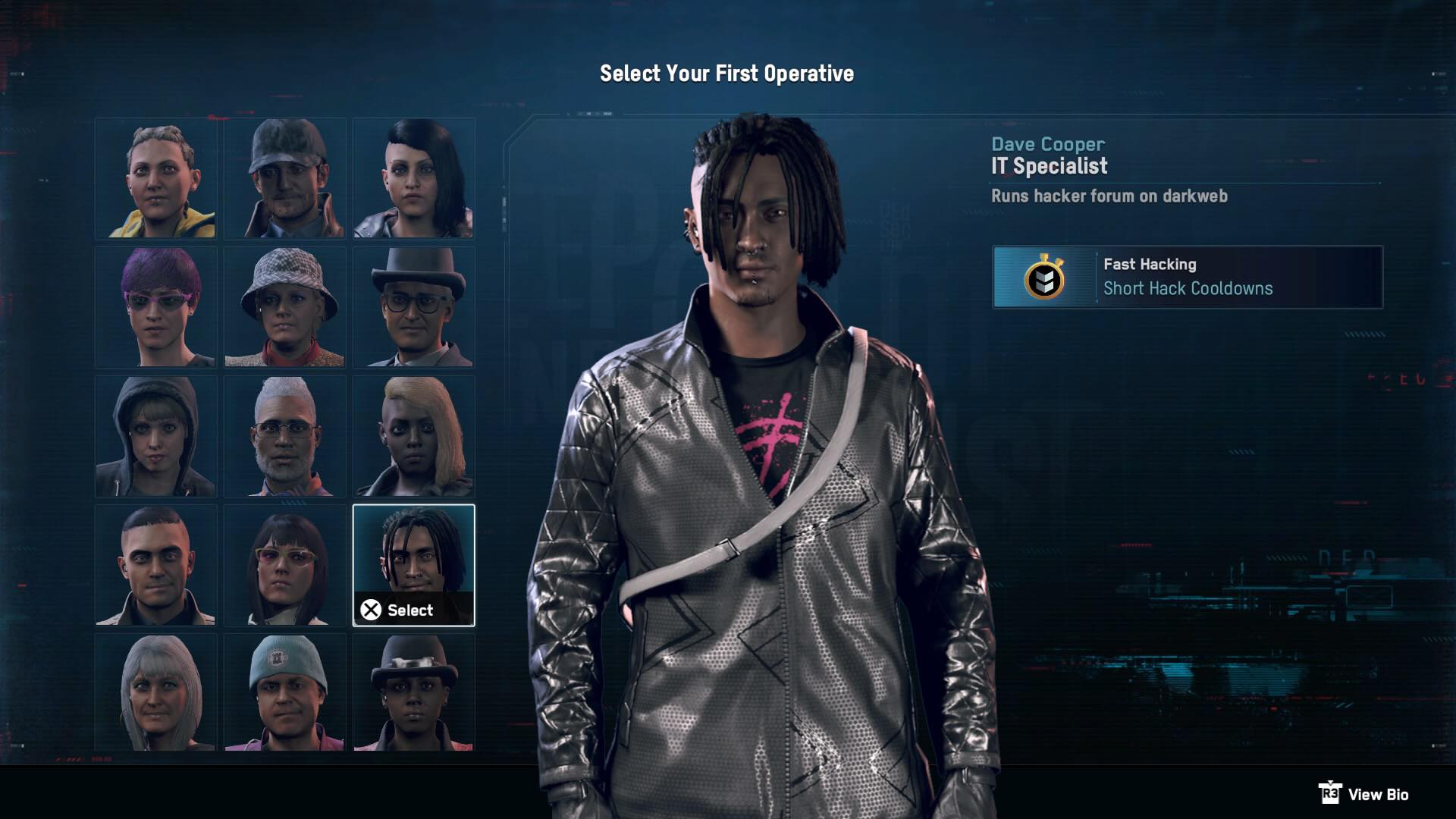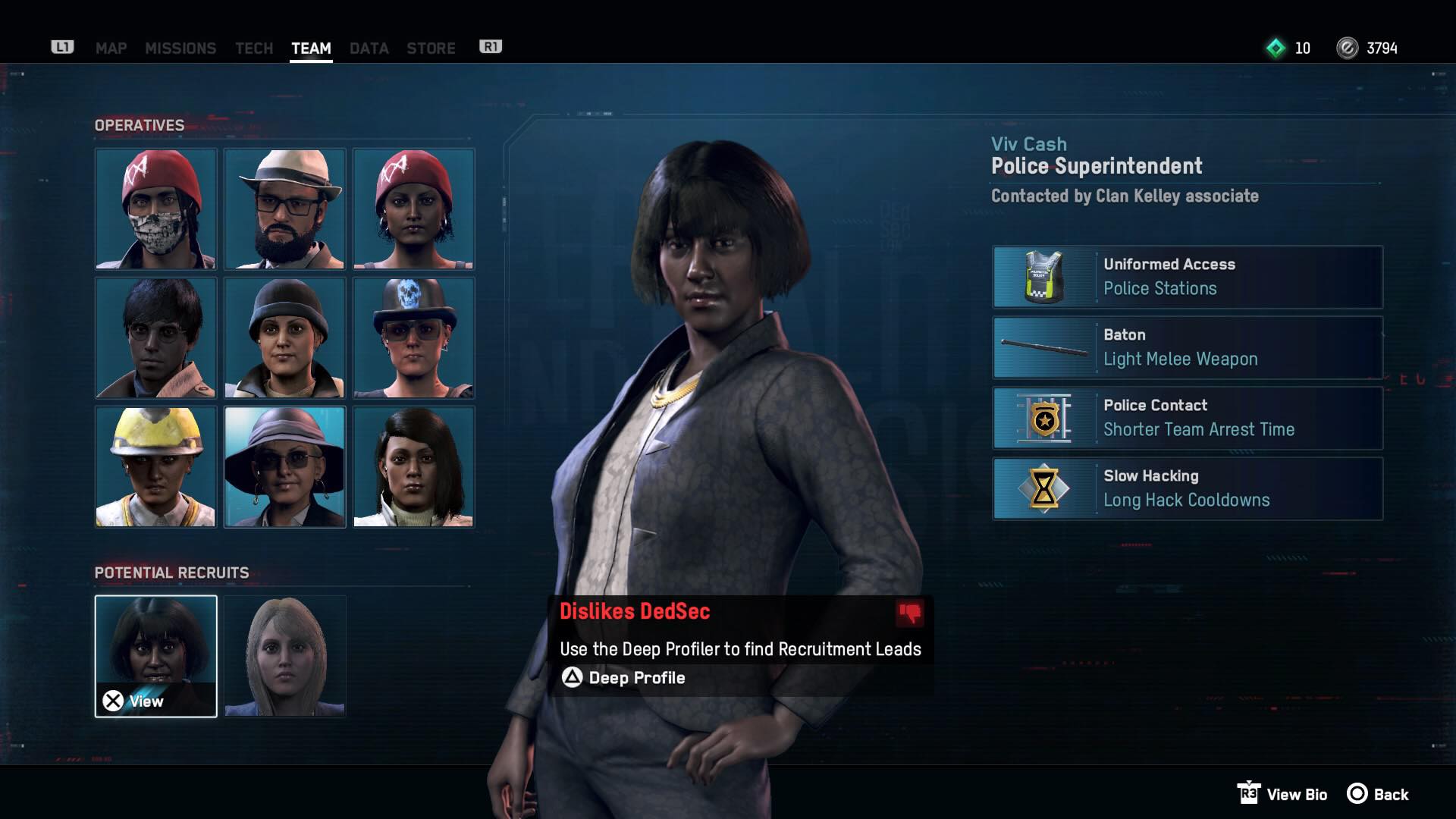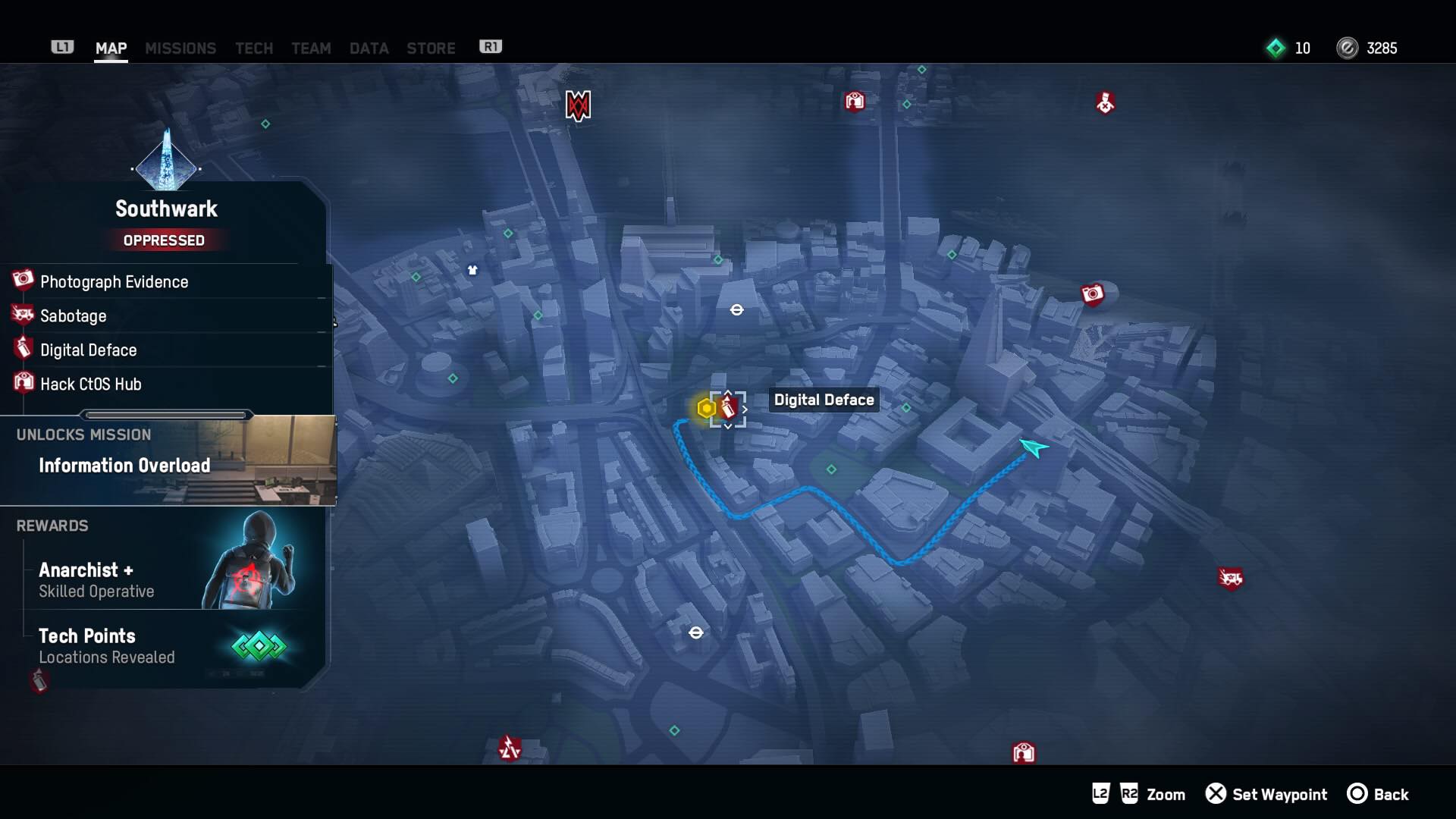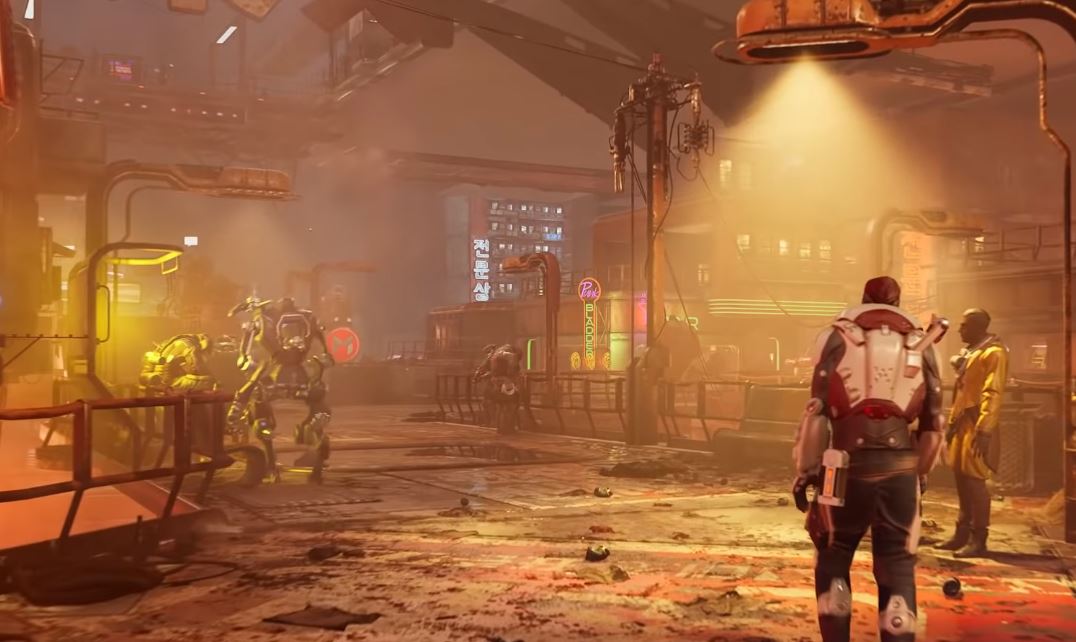Review: Watch Dogs: Legion – A Relevant World Where You Are The Resistance
I feel that most of Ubisoft worlds intersect with the same theme and subject matter, and the Watch Dogs franchise is no exception. However, in terms of standing out, the last two games have blended into the background having a lot similarities with other games in its genre like Grand Theft Auto and Saints Row.
From a non-player looking in, Watch Dogs seemingly lacks the core identity their flagship games have built over the years like Assassin’s Creed and The Division. Watch Dogs: Legion seeks to set itself apart from the other properties with its single minded proposition where you could be anyone and everyone, a direct reference to the hacktivist group Anonymous.
London is the stage where the story has been set and hacktivist group Dedsec intercepts a signal threatening an attack on the Parliament Building. Events go sideways and Dedsec has been branded a terrorist organization and the now fractured collective desperately seeks out the help of any of their available operatives. That is where you come along: to help rebuild this underground organization from the ashes of their former self while dodging local gangs and the new security corporation – Albion – who has turned London into a police state. All the while, the elusive hacker organization Zero Day who set all these events into motion, watches from the shadows, their next move a mystery…
The Hero is YOU… and Everyone Else.
At first I felt that Watch Dogs: Legion tries to pander to our kind of Millennial/Gen Z archetype who peruses the gig economy to make a living. When selecting your first operative, the selection of people are diverse and can range throughout a multicultural set of individuals with different disciplines and backgrounds. It was quite a nice touch to note that my choice of operatives here were different from my colleague.
I selected Dave Cooper, an IT specialist for better tech proficiency over an ex-military grunt or a novelist who has a background in cryptocurrency (because why do I want to play as myself, I already live it).
You eventually make it to your safe house where you get training on how to traverse this brave new world. I actually appreciated how they made this tutorial mission fresh as I usually get bored with this part of the game as we’ve come across this trope on this genre way too many times to count.
Rewards have been divided into the crypto ETO, which we use to purchase gear for each of our operative’s wardrobe. The other currency are Tech Points, in which we could purchase new gadgets or upgrade our existing ones to help us take on surveillance drones and recruit better operatives, even the ones who have a low opinion of Dedsec. We start off with an infiltrator spider-bot that helps with remote hacking and AP Cloak that makes you invisible for 20 seconds. Each up-gradable tech is divided into three levels, each one with their unique component to boost you up for the long haul. Finally Masks are another cool cosmetic collectible to add your endless collection. They protect your identity while keeping you either stylish or comedic.
While it feels like our chap Dave Cooper will be our sole eyes and ears for the rest of our Watch Dogs: Legion journey, as soon as you get out of the safe house, you’re able to recruit potential Dedsec operatives at Connie’s Pub. I recruited a former car thief who wanted me to steal a car they’ve been arrested boosting and drive it into the River Thames. It became a two for one deal as once I completed his mission, I ended up recruiting his best friend as well.
Each operative has their unique skill, perks, and also drawbacks. My initial operative is great with hacking, but merely average with fighting. One of my new recruits has a gambling problem, so while he sometimes wins some ETO for me, I lose out just as much. The good news is that you have the ability to retire every operative including your very first recruit. (Sorry, Dave) I eventually dismissed the gambler to stop the uncertain gain and loss of ETO. Other operatives come with their unique load outs, with one of my starter recruits owned a silenced P9 while another packed their own shock rifle. Other drawbacks include quirks that call attention to them losing out on stealth, increased jail times if caught, permadeath for some of our unlucky operatives, and our personal favorite… some of them just randomly die on the spot. Nobody shot them, nobody ran them over, Light Yagami just wrote their name on the Death Note and then gone.
Recruitment Missions begin as soon as you hear a potential operative’s story. They can range from escort missions, to hacking missions, to survival missions. After a dozen or so missions, the novelty wears off and they become for a lack of a better term, radiant quests. For some operatives, the missions are worth it as I’ve recruited better fighters with more combat training thus I can survive an ambush far more efficiently. For most recruits, it is best to check on their status and see if they’re worth pursuing. You can lose recruits by failing a mission as well. Lost recruits could not be reclaimed again, so if you have a recruit you’ve set your eyes on, don’t fail that mission. However, if you do, accept their fate and move on as you have the whole of London to rally to your cause. As you progress through the game, you get higher tier operatives with more unique weapons, abilities, and personal drones & vehicles to change up your play style and try out new strategies.
As virtually almost every single citizen in London is up for grabs, the ecosystem is set up that these same NPCs that you randomly attack or run over with your bad driving can leave a lasting consequence on their perception of Dedsec. I have a potential recruit who I knocked out to download information on some medical files for another mission. It turns out that they have access to medical facilities that Dedsec could use. I eventually utilized Deep Profile so I could recruit said operative by doing them an extra favor / mission through the use of information from their stolen data. That tactic also works for potential recruits who already have a low opinion of Dedsec to begin with.
This has become my favorite part of the game because of how every bystander in the game could potentially become part of the main story. For the longest time, bystanders in open world games were merely walking liabilities who slow down your progress when they become collateral damage. Now every citizen is a potential recruit or a future enemy. It’s a fun dynamic that actually sets it apart from the typical open world game using the same tired system of completing quests and finishing side missions with the same generic protagonist auto-generated by the same game devs. I don’t know about you, but I often wonder about the faceless majority that populate any given open world game. Why does the chosen one douchebag get to have all the fun?
Hacking Is Your Weapon
Just like the previous games, the main draw of the combat system has been the hacking capability. You still are able to use physical combat in the game with melee fighting if you’re caught trying to infiltrate and every character is equipped with a shock pistol to fend off enemies. Some operatives as mentioned above are packing better heat than the conventional Dedsec load out, but your main weapon is using the tech in your fingertips to produce the best results.
The environment around you can be manipulated to trap enemies such as control panels could be rigged to detonate or send out an electric shock to neutralize enemies. Security cameras and even their own phones can be used to distract targets while you quickly do a take down or lead them away from your position. Even parked cars can be hacked to become a weapon, crushing clueless guards not knowing that their security has been breached. Your play style is up to you whether you wish to be lethal or a pacifist, it’s not Dishonored where there are permanent drawbacks for killing enemies. Take note that your operative can also be arrested and taken out of the board if you don’t play your cards right.
I prefer the stealth missions versus the actual combat because of what you can accomplish with hacking. You could plan your entry and escape by hijacking CCTVs around the enemy compound, learn enemy position, remotely download security keys for access, and have a cargo drone waiting at a convenient place for your quick getaway. It’s quite fun to figure out the safe zones on the fly and avoid combat altogether because they can get time consuming and not all your operatives are trained serial killers like in most games. Sometimes you can even do entire missions without being in the same room as the objective by using every hijack-able tool in your vicinity. There was a mission where I had to destroy a vehicle serving as a weapons cache at a Clan Kelley base, which was conveniently located underneath a mall. All I had to do was hack into a surveillance camera and trigger a remote explosion next to said vehicle. Nobody even knew I was technically in the same location.
While the hacking component as well potentially recruiting everyone in London gives you unbridled power, don’t underestimate what Albion, SIRS or Clan Kelley could throw at you. Combat Drones are especially annoying as they attract enemies on your path while and pack firepower that can easily neutralize your operatives where they stand. Turrets are also just as deadly as while they lack the mobility of a drone, their sheer firepower can turn your ambitious hacktivist into ground beef. Human enemies also present their own challenges as by themselves they can easily be neutralized but as a swarm, they can quickly overwhelm you with melee damage and could further escalate into using their firearm.
Combat and hacking controls are ubiquitous, they’re built into your regular exploration controls. While a skilled Black Hat could cause major damage a block away, manipulating the enemy’s tech against them; a skilled Spy or Hitman could infiltrate an enemy space and wipe enemies out with brawn alone. The real challenge is when your enemy comes at your operative’s weakness. In the case of our starter chap, Dave Cooper, he doesn’t have much combat skills so it’s easy for him to get taken out by an Albion grunt or one of Clan Kelley. While my fighters can hold themselves during survival missions, since hacking isn’t their forte, they could get taken out by an unplanned drone ambush or a hidden turret. Since you can’t change operatives in restricted areas, plan your missions accordingly.
Jolly Old London
Riding a vehicle around London is seamless between each borough, which makes it easy to access missions that seem to be far off from each other. As I’ve noticed, everything in London is separated by at least a kilometer away and some recruitment missions really ask you to go across town to save a friend or to hijack an AI replacement. I’ve played a plethora of open world games that utilized horse mechanics, so returning to automobiles was quite a bit of a challenge. Even more so that we have to drive on the left hand side of the road. The good news is that you can use your tech to forcibly move the self-driving cars to the side with your hack ability while you get the whole of the road to yourself.
There’s plethora of vehicles to choose from and some of your operatives own their personal carriage. However if there’s one lesson that Grand Theft Auto taught us, why own when you can steal? Out of the myriad of sports cars, utility vehicles, and heavy duty rigs that you can “borrow”, service machines like the Albion cruiser or an ambulance give you the ability to switch on your sirens and cars will make room for you. Motorbikes are the closest you could get to a horse but unlike in Red Dead Redemption, Assassin’s Creed, or Ghost of Tsushima, when you crash the bike only you get hurt. Motorboats are a great way to traverse River Thames and access hidden Albion bases. Spies own their personal spy car that can cloak and be in the same spot as you when you activate said operative. It’s probably the only personal vehicle that’s convenient to have because of the cool toys built into it.
What I hated was the fact that character movement depends on the physicality of your operative and there are times where your character can run for hours on end or you could have a grandma with mobility issues. There are times where I was hoping for a horse to negotiate through the crowded alleyways as ramming a Prius into the boardwalk is more trouble than it’s worth. To move faster, a vehicle is almost a necessity even within 100-200 meters away from your destination. While realistically, it makes the travel time more believable, the novelty wears off almost immediately when you just want to get to your next mission without spending five minutes actually getting there, like in real life. Exploration missions force the characters to walk and the sluggish pace really slows down the game’s momentum that sometimes I’d rather use a drone or a spider-bot to get it over and done with.
Unlike other open worlds of the same genre, there is no level requirement to explore much of London. What I hated about The Division was that certain areas have level requirements before even pursuing unless you welcome the absolute certainty of instant death and lost loot. Operatives are differentiated depending on their unique skill set. No grinding is required and if you need a specific skill, all you need to do is find an asset, do them a favor, and then activate them. It is in a way a different type of grind, but it’s not a run-of-the-mill numerical one. Also you can always save a potential recruit into your team archive and reach out to them when in need of their specific skill.
The mini-map is akin to searching for a specific store in a mall with Google Maps. They’re accurate enough but guesswork is still required on what exact floor they’re in. I appreciate that we have so few collectibles in this game that it’s almost not a necessity to grab them. The spider-bot is your friend for collecting items in hard to reach areas. I like that the fast travel points (outlined by The Tube stations) are revealed gradually when you peruse the map instead of actually physically traveling there to access. It solves quite a lot of the movement speed issues I have with the game and it also deters me from my bad driving.
Completing challenges is a great way of unlocking more experienced recruits as well as extra missions to expand on the game’s story. They range from disrupting propaganda, digital deface, neutralizing VIPs, photographing evidence, just to name a few. While completionists would get onto these activities, I appreciate that you are rewarded with extra content for allowing a borough to become defiant.
Speaking of missions, unless you’re dealing with a time sensitive event, you can complete any challenge near an ongoing mission before tackling your mission event. This way, it allows you to stack multiple activities at once without consequence. It’s a great component with a large map and varying character movement speeds, mission planning is almost a must at many points to save on game time stolen by load screens.
While you have your main & side missions, borough challenges, and recruitment missions; there’s a gamut of activity to be done for extra ETO while inciting dissent such as Paste-Ups, Kickball mini-games as well as doing timed deliveries for Parcel Fox. If Sam Porter Bridges thinks he has a monopoly on being a courier, you can become London’s own legendary porter delivering parcels and overpriced chicken tikka to your oppressed neighbors.
Fight The Power
The game starts off strong even for players such as myself who didn’t delve into the first two games. Unlike the Assassin’s Creed franchise where you could get lost with the entire Abstergo backstory, you don’t need any background on what Dedsec’s recent journey has been. The prologue felt like an episode of James Bond or Mission Impossible and sets the stage of the rest of the game. As I commented on the tutorial, there’s not a lot of boring down times. The walking time and some recruitment missions may slow down your progress a bit, but if you follow the flow of the game, the pacing is consistently quick and its missions brief.
While the game doesn’t just throw you into the world like in The Division 2‘s campaign, central characters like the intrepid Sabine Brandt and the wise-cracking AI program Bagley serve as anchors for its narrative. They are your early guides easing you into the world’s lore and don’t throw you into the deep end without proper training. That being said, it also gives you enough freedom to explore said world with minimal hand holding that doesn’t seem like it’s leaving you to sink or swim like in The Division 2. You could definitely start fresh without any reference to previous protagonist Marcus Holloway and his exploits.
Also, every operative does not feel like a generic grunt like in The Division, they have their own backstory and while their personalities and even voice tonality may intersect, there’s enough variety for every operative that they can each stand on their own. It gives a human voice when completing the main story allowing myself to build empathy to the cause unlike in open world games with silent protagonists where I only care about how much XP I’ll earn and the loot I’ll receive.
The individual missions are well designed and add to the construction of the world as a whole. The open world storytelling has desensitized me quite a bit and I’ve skipped many side quest cutscenes in recent memory because it always involves some form of fetch quest, escort mission, or delivery of some kind. While Watch Dogs: Legion did not attempt to reinvent the wheel, the game has come up with creative ways of integrating these missions with the lore of the world and your relationship with contemporary technology.
I underestimated Borough missions as a whole because it requires busy work to unlock and then I assumed I’ll undergo another generic fetch mission. However, I was genuinely surprised with the slick level design incorporated in these quests. One quest called for a spider-bot to climb the Westminster Tower in order to generate a widespread disruption of Albion propaganda being projected from its apex. While in what is reminiscent of a “temple exploration quest”, you explore a decommissioned power plant with only a news drone to help you negotiate the pitch black landscape in order to free kidnapped activists.
The early main story missions got me quite intrigued because I expected an exposition dump as the mission calls for an investigation of the mystery of Dedsec’s downfall. I commend the scenario designers of hiding heavy exposition within a uniquely designed investigation quest where you infiltrate said compound while reconstructing past events with AR tech. Games of late have been abusing the flashback narrative tool to tell the story, but instead of making it interesting, they become a twenty minute info-dump with terrible dialogue. Using the tech to tell a story as well as looping in other operatives into the adventure is a great way to integrate all the moving parts into one coherent narrative flow. If only early missions in open world games could be more engaging like this, it would prevent me from leaving them for last as I exhaust the open world for all the extras leaving me with no motivation to continue the main narrative.
As I progressed through the game, I’ve and built up a diverse roster of recruits, ranging from the main hacker operative to the muscle that can withstand an ambush from either Albion or Clan Kelley. Just like in Suikoden, I have operatives that are there for passive functions like reducing arrest time and injury duration for downed operatives. I even have operatives that provide clothes discounts. For fun, I recruited a hypnotist grandma, because everybody should have a hypnotist grandma in their task force. I’m currently sending a septuagenarian MMA enthusiast granny to all the underground fist fighting tournaments, because we can’t let Heihachi Mishima be the only septuagenarian (or at this stage octogenarian) to be the King of the Iron Fist Tournament.
With a diverse cast like the motley crew I’ve assembled, there are many dynamic ways you could go about completing missions utilizing the skill sets of your team. Though there could’ve been more variety of operatives from the skill combinations that I’ve run across because securing a crew of two to three operatives is enough to get you through most missions. Hackers are quite imbalanced and will mostly run the show, you would only need to round your crew off with operatives with specific uniformed access such as an undercover Clan Kelley enforcer or an Albion contractor. I feel that there should be a patch or a difficulty option that puts a limit on operative usage, such as an operative should not be available during some parts of the day because of the responsibilities of their alter-ego. That would encourage the player to establish a healthy rotation within their roster. Combined with a repetitive recruitment mechanic, there will come a point in your thirty to forty hour mark that the novelty will completely wear off and the process will become a chore. I’m not gonna lie though, it’s quite fun just being an all-powerful hacker. You can assert your dominance as a modern day sorcerer by abusing all the tech in the vicinity to make everyone bend to your will.
I’ll end this review with a comment on the load times. In my total run of this campaign which will vary depending on how you play but we can safely say that it’ll take around 25 hours give and take, 20% of that time involved a loading screen of some kind. The worst is when a load screen pops up when you’re switching between your operatives and fast traveling, which you will do A LOT given that London is a huge place, people drive on the wrong side of the road, and your bench has the potential to get deep as the eventual missions call for specific skill sets. This hopefully might change for the next gen, because these load screens add up and they get annoying real fast.
What We Liked:
- Fresh take on the open world genre with creative mission designs subverting expectations.
- Recruitment missions and maximizing the existence of every NPC in the game.
- Hacking components seamlessly blend with combat and environment.
- Open world allows full exploration of London without a level requirement.
- No need to play previous Watch Dogs games to enjoy.
What We Didn’t Like:
- Load Times, but could be different on a Next Gen Platform
- Moving 100 meters in-game by foot feels like 100 meters in real life.
- Recruitment missions after the first dozen become glorified radiant quests.
- Late game mechanics eventually default to repetitive usage of the same three main operatives; creating a feeling of tedium and under utilization of other members of the team.
Verdict: Buy It!
Watch Dogs has come a long way in establishing their brand and I feel that the open world of the game seems fresh for this type of genre. The main fact that every NPC gets to be part of the main party feels original. In a market saturated with the same open world game, it was nice to get a taste of something new.
Raise your hand if you’re tired of the chosen one story. While at first it seemed pandering, it’s a breath of fresh air that every average schmoe has the agency to fight for their home and that they don’t have to rely on some privileged self-important hero to save the day. As they say in game, Am so soddin’ sick o’ that tried an’ tested smeg it makes me go aggy; makes ye wish fo’ somethin’ new, innit?
I expected to hate this game from the get go because it ticked off almost everything that annoys me in an open world game by definition. However, upon playing the game, I pretty much realized I’ve judged the game by its franchise. Since I got an enjoyable experience out of it, this is one of those rare times where I’m happy to be proven wrong.
*Watch Dogs: Legion was reviewed on a PS4 Pro via a review code provided by the publishers.








